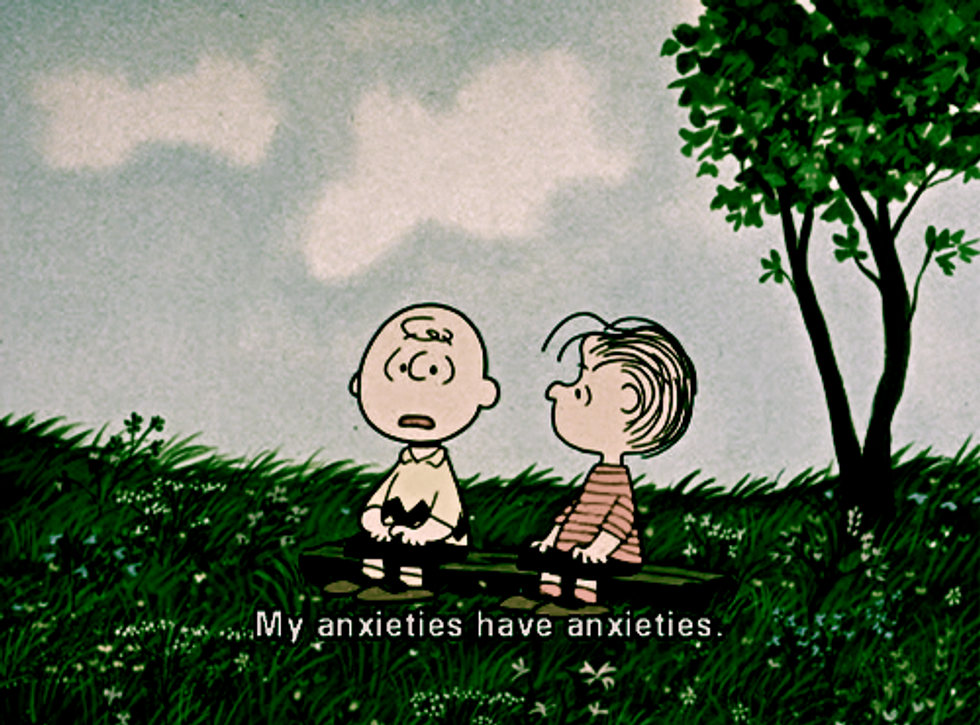You're at your own birthday party. Your family and friends surround you. Your mom made your favorite cake because she loves you and enjoys seeing you happy. Surrounded by stacks of thoughtful gifts, you smile as your loved ones sing "Happy Birthday" for what seems like an eternity. This is a happy time, so you should feel excited, loved, wanted, and accepted – anything besides what you are actually feeling. You feel isolated. Despite the amount of love that surrounds you, you still feel judged and alone. This isn't a case of birthday blues. This is anxiety. This is only one example of how a mental illness, such as anxiety, can negatively affect your life by limiting your happiness.
Anxiety can be described as a fear of what might happen. Anxiety is like having fear as your shadow. It's easy to label anxiety as an excuse to not do something that's expected of you, such as going out for an event or stepping out of your comfort zone. In reality, anxiety is often crippling. Depending on its severity in a particular person, anxiety can cause you to just harness irrational fear over something petty, or result in a much more severe affliction.
Anxiety has the power to lead one to depression. Depression is not only feeling sad, but feeling so sad that you can't or don't feel like living a normal life. Depression is dangerous in that it can talk you out of wanting to live your life. There are about a billion reasons to live, but depression can reduce the list down to zero. Watch out for signs of depression in yourself as well as in the people you know and love. When standing under a cloud of depression, it is hard for one to see anything beyond his or her own self-diminishing thoughts. Help is always only a phone call away.
Anxiety and depression are real mental illnesses, and they should not to be readily excused. When you think of the term "mental illness," more extreme diagnoses probably come to mind, but anxiety and depression definitely deserve validation. From personal experience, I have noticed that feelings of anxiety and depression are often dismissed without proper evaluation or treatment. We must remember that our feelings, no matter what, are valid. Simply because we do not understand what someone else is feeling does not mean that he or she is not truly experiencing those symptoms, thoughts, and emotions. In this case, if someone you know exhibits signs of a mental illness such as depression, it is imperative that you help that person seek help.
In relation, it is important to not encourage the demonization of one seeking help, undergoing treatment, or taking medication for a mental illness. There is absolutely no shame in reaching out for help. Some problems cannot be solved by a change in routine, a new religion, or so called "happy thoughts." People with heart conditions are not judged for taking their heart medication, so why should people with depression be judged for taking antidepressants? The mind must be taken care of. Without help, a mental disorder can make way for a physical ailment.
So, for those familiar with the shadow of fear known as anxiety or the perpetual rain cloud of depression, know that you are not alone. Your feelings exist, and they are valid. Do not dismiss feelings of depression or anxiety. Seek help in order to get back to living that wonderful life that God has gifted every one of us.
























